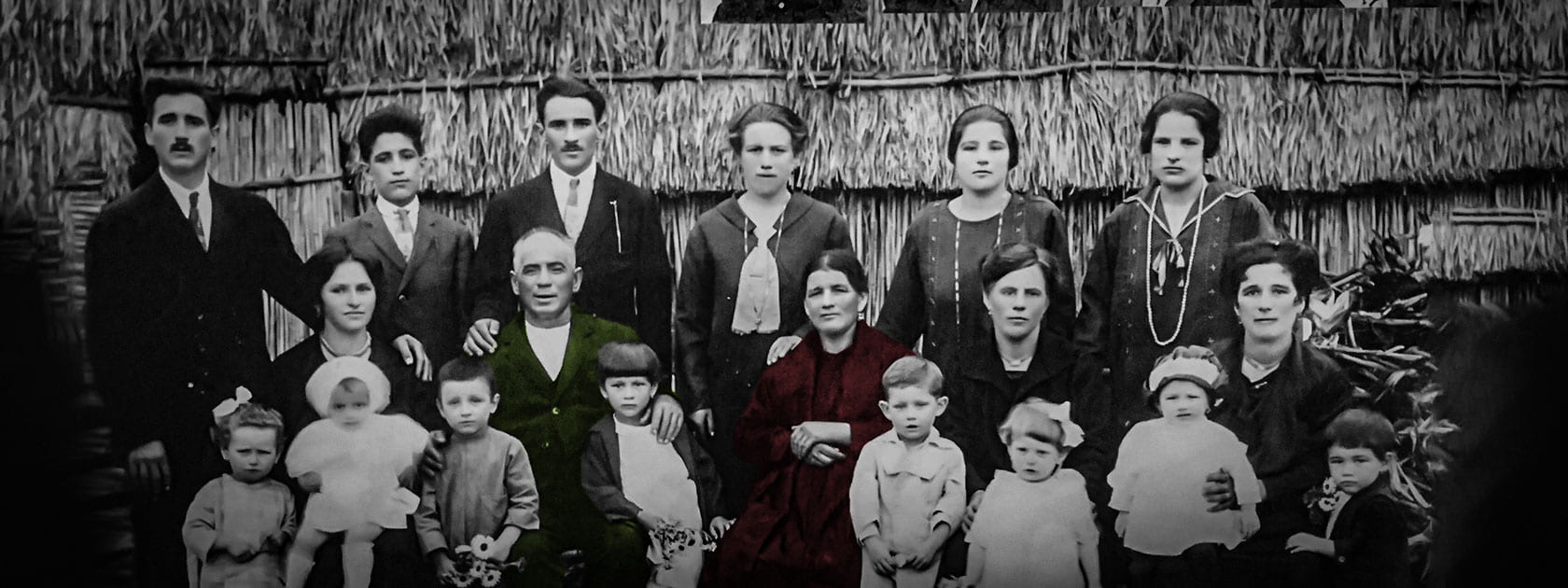Date
May 25, 2011
Maker
Columbus Centre
Accession#
ICEA2011.0031.0001
Interview With Gloria Miron & Richard Ladyk
Cousins Gloria Miron and Richard Ladyk describe the internment of their grandfather, Emilio Galardo. This interview is a follow-up to one with Richard’s mother, Beatrice (Galardo) Ladyk. Emilio was arrested at his photography studio along with his son, Pasquale, and his friend, Oscar. The Chief of Police, who was a former friend of Emilio’s, was the arresting officer. Emilio was a gun collector and was accused of collecting the guns for use in the war. The police searched his house looking for guns; the confiscated guns were never returned to him or his family. Emilio was interned at Camp Petawawa for nearly three years. When his family tried to visit him, they were turned away. When Gloria’s mother discovered that Emilio was being held without charges, she drove to Ottawa in order to find the judge that signed the papers that interned him. The judge confirmed that no charges were laid and two weeks later Emilio was released. The internment broke Emilio’s spirit and he never regained his dignity. Gloria describes his photography that is currently on file with the City of Sudbury. She also reads aloud a translation of a poem that Emilio wrote during his internment.
In this clip Gloria Miron introduces herself and speaks about her family.
In this clip Gloria Miron recounts the events of June 10, 1940 when her father and grandfather were arrested. She also shares what she believes is the reason for the internment of certain Italian Canadian community members.
Gloria Miron speaks about life at home during her grandfather’s internment. She also speaks about how her family found out where her grandfather was being interned and their attempt to visit him.
Gloria Miron explains how her mother assisted in securing her grandfather’s release. She also speaks about her grandfather’s return home.
Gloria Miron shares how the internment caused irrevocable damage to her grandfather’s dignity and character. She speaks about his work as a photographer and mentions that after the internment he never went back to his studio again.
Gloria Miron reads a translated version of a poem her grandfather Emilio Galardo wrote while interned at Camp Petawawa.
Gloria Miron mentions that her grandfather never spoke about his internment after his release. She also mentions that her family was even told not to speak about the period while in public.
In this clip Richard Ladyk, Gloria Miron and Beatrice (Galardo) Ladyk discuss how a number of prominent local business people signed petitions to help get Emilio Galardo and his son released.
Gloria Miron speaks about how her family coped during her grandfather’s absence.
Gloria Miron mentions that her grandfather became reclusive after his return from the internment camp. She also mentions that her grandfather considered himself an artist and played the mandolin while his was in camp.



